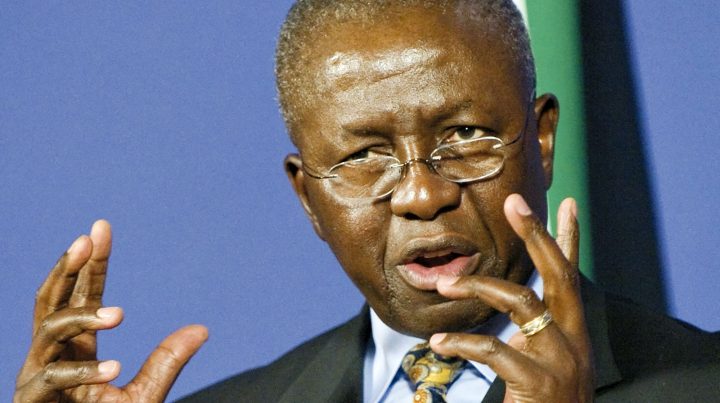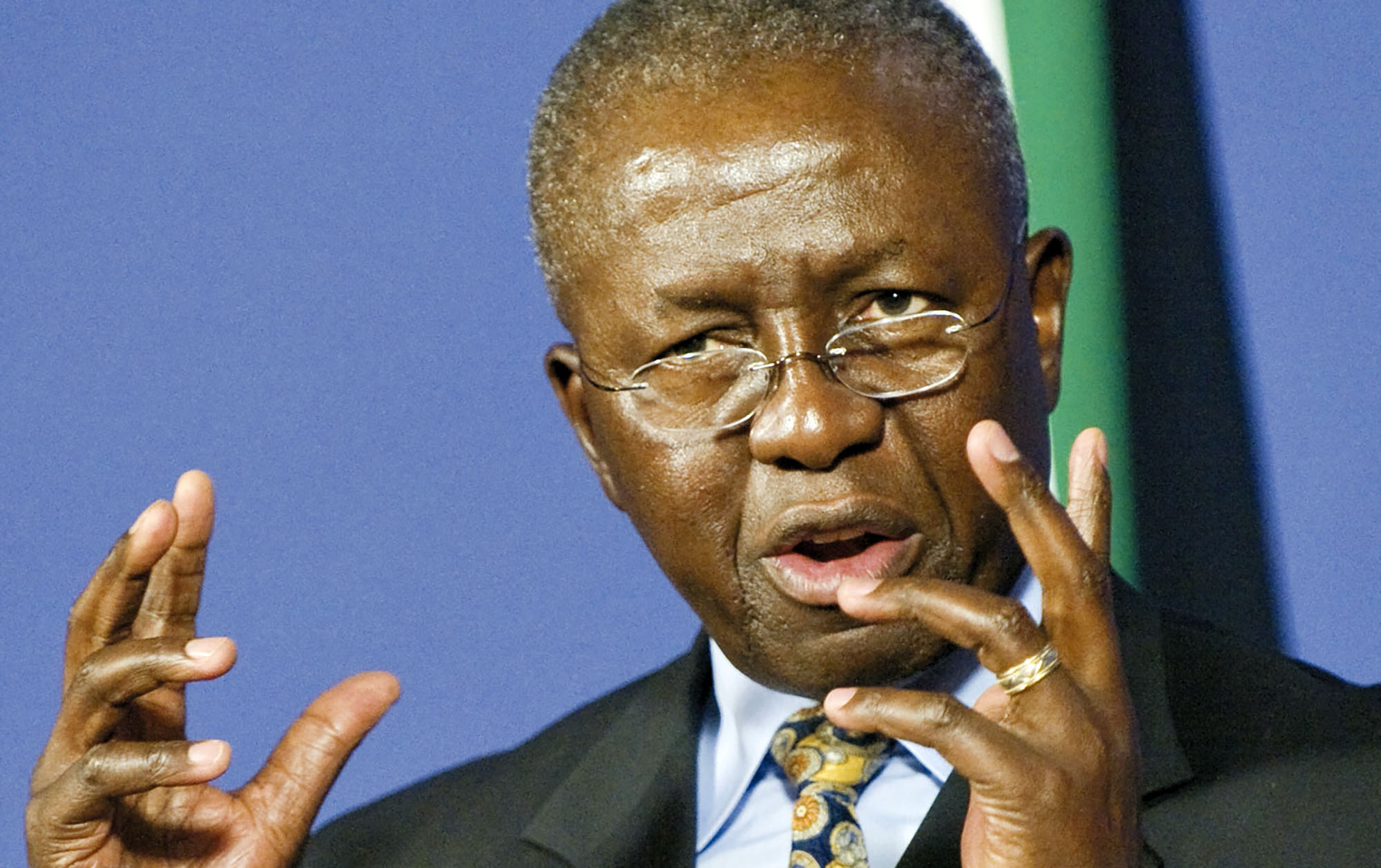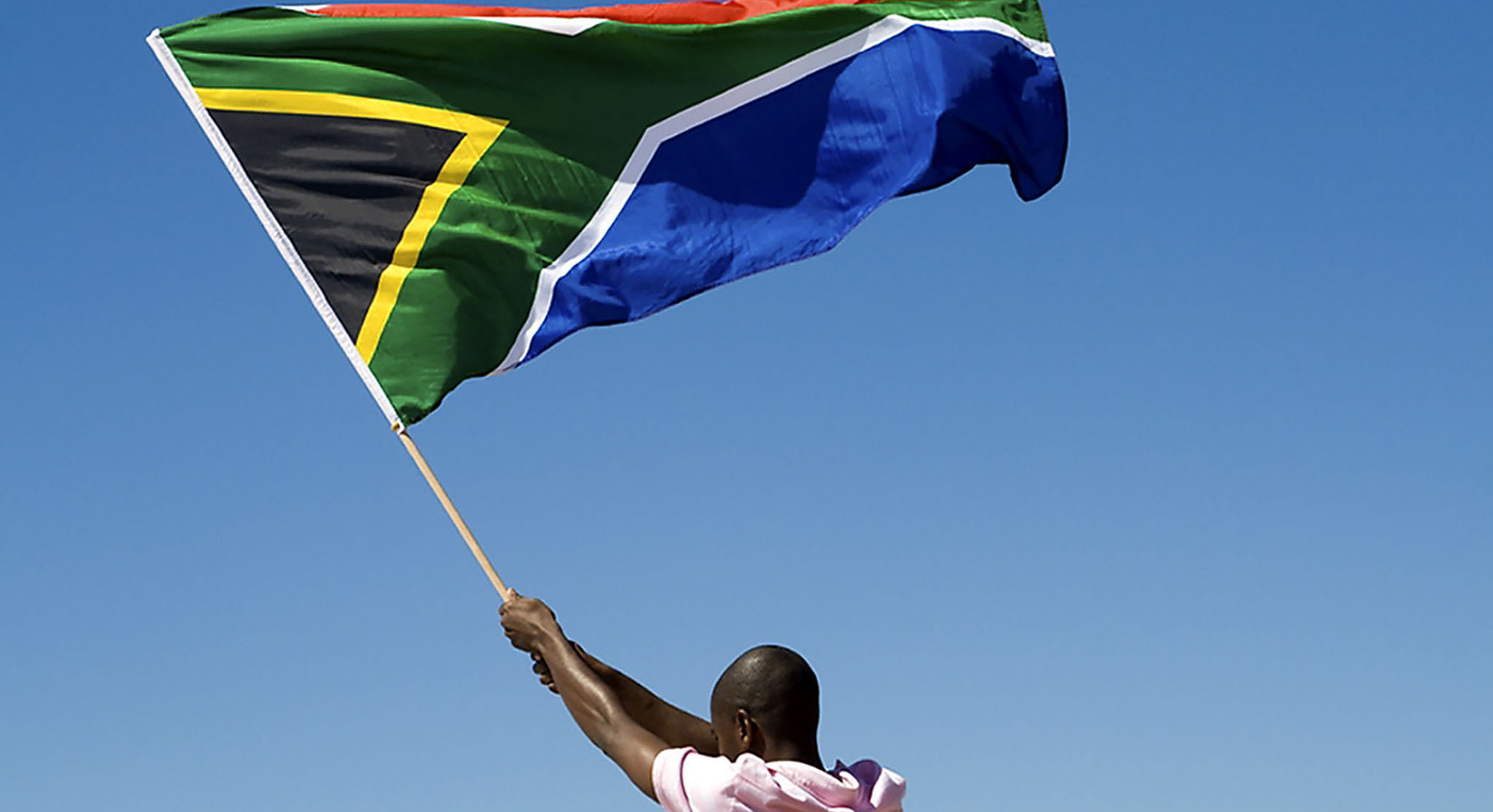HUMAN RIGHTS DAY
‘Imperial Presidency the weak link in the Constitution’ — retired Justice Dikgang Moseneke

One of the greatest inventions of the past 25 years is the idea that a government of the people is still subject to the law, a Conhill Trust discussion hears.
The Conhill Trust’s We the People campaign hosted a discussion between advocate Tembeka Ngcukaitobi and retired deputy chief justice Dikgang Moseneke which was facilitated by advocate Adila Hassim, as a precursor to Conhill’s annual Human Rights festival themed, “The Constitution, a doorway to freedom or a barrier change”.
“We are 25 years on from the making of the Constitution and there are two aspects: one is the process of the making of the Constitution, it’s not unimportant, it’s what makes the Constitution legitimate. The second is the content – whether the content of the Constitution is just and when we look back to the making of the Constitution we remember that, that in itself was a decisive moment of confronting our past,” said Hassim, setting the scene for the discussion.
She described the process and drafting of the Constitution as unique due to its public participation and certification by the Constitutional Court as well as the mass media campaign soliciting opinion and comment from the public. Almost 2 million submissions were received from ordinary South Africans.
Hassim said one of the features that set it apart was the inclusion of socio-economic rights, and that it would be the first time that there was a mechanism to hold the government to account for failure to deliver on those rights and demand that it takes steps to fulfil those rights. The second defining feature is that in appropriate cases, the Bill of Rights finds private actors. “Yet despite this, we are living in a country of growing inequality”. This lays the foundation for growing problems and questions about whether the Constitution is taking us in the direction of what was set out in the preamble.
Reflecting on the Constitution-making process, retired deputy chief justice Dikgang Moseneke told attendees, “It’s not an easy discussion; it’s no longer one to savour, it’s [become] complicated.” He said it seems as though the complaint is that the Constitution has been “over-valourised” and that it may work for the middle class, but not everyone else.
He said part of the difficulty with the Constitution is that it “was born in sin”.
“Many young people assert that these were unequal forces driven by guilt and wrong on the one side and right and idealism on the other side.”
Moseneke said that it was ahistorical for some to suggest that nothing happened before 1994. “They talk of the deal that was cut as being unhelpful in addressing some of the most difficult things. Now, most of us who were there know that these were hard-negotiated bargains and of course, they were in a particular power setting.” This has led to a debate about whether the ANC and National Party “minted” something that was genuine to the aspirations of the majority, which would explain why the government is “impotent” when it comes to converting society into what people fought for more than 350 years for.
He said section 25 of the Constitution, which deals with the land question, highlights the fact that the pre-1994 deal that was brokered did little for the public. This argument was further strengthened by the “parlous performance” of those in power. “The ruling class has not covered itself in glory.” Moseneke said that he doesn’t endorse the Constitution as others might, “I think there are six or seven things that could have been done differently and I’m open to having that debate.
“I try to look at the Constitution from a broad historical trajectory … It transforms into legal language, into Constitutional text and into the Bill of Rights for the first time in 1923” said advocate Tembeka Ngcukaitobi.
“This is when the ANC of Pixley ka Isaka Seme appropriated the language of demanding rights as art of the educated elite, what struck them was the hypocrisy of the British where in England they were treated as completely equal but in South Africa the ethos and values of racial discrimination were quite prevalent.” He said the ANC document had contradictions, because “it demands equality according to Cecil John Rhodes who declared that there should be equality for all civilised men south of the Zambezi”.
“One of the greatest inventions of the last 25 years is the idea that a government of the people is nevertheless subject to the law,” said Ngcukaitobi.
Ngcukaitobi said apart from the current debates in law schools, there are other debates taking place about demanding the implementation of the Constitution; demanding land, housing, textbooks, accountability; and a layer of the underclass who are without access to media which then excludes them from debates about the Constitution.
Land
Asked by Hassim whether he thought the property clause was a constraint, Moseneke responded that he does not, but that one of his biggest gripes about land “is seeing so many of our people so poor, so landless, so cramped, it just makes the point [made by political philosopher Frantz] Fanon 80 years ago, just the connection between dignity, space and land. And moving to semi-rural areas; the congestion, the grime, the poverty and comes to mind Abahlali baseMjondolo and there are many formations that speak to that, so land equity is as yet unachieved,” Moseneke said.
Moseneke said that he had published a paper on section 25 of the Constitution in which notes that the section “does a number of good things”, like protecting property from arbitrary deprivation, and that it gives the government “carte blanche” to try to give people access to land. “Looking at the statistics of land that has actually been passed on to people, not just farming land you see that very little has been done and how the poverty actually stands out in your face.”
“For the time that I spent in court, there was not even one expropriation case that came to the Constitutional Court, so our government never dared to expropriate even once in order to advance land justice. I find that remarkable! Rather than going and amending the Constitution, section 25 in my opinion has enough power for a willing ruling elite to deal with the land question,” stressed Moseneke.
He said that when making a determination for expropriation, the courts have to look at what the land was historically used for and what it will be used for now to justify expropriation or deprivation. The “willing buyer willing seller” principle appears nowhere in the Constitution and yet there were such claims in the Land Claims Court.
“Section 25 is a mandate for transformation, it’s obligatory,” said Ngcukaitobi, adding the claim that it was the result of a compromise during the Codesa negotiations was a distortion because the ANC had won all three of the disputed points on land; 1. The right to property, 2. The right to restitution and 3. The right to adequate, prompt and full compensation. So the ANC got what it wanted but as soon as it got [it], in 1997 a land reform white paper was introduced introducing the concept of market value compensation influenced by the Land Bank, a policy Ngcukaitobi said was inconsistent with the text of the law.

Advocate Tembeka Ngcukaitobi on March 14, 2018 in Johannesburg, South Africa. (Photo: Gallo Images / Sowetan / Thulani Mbele)
Ngcukaitobi also explained that the first land commission was strong but that over time it had been eroded; there has been a deterioration in the quality of its administration and has been incapacitated. “There can be no revolution without institutions,” stated Ngcukaitobi.
He said during his tenure as an acting judge at the Land Claims Court he had dealt with over 90% eviction cases and very few land claims, indicating that the structure is not balanced for black land claimants who need access to historians, property valuers, anthropologists and lawyers which they may not be able to afford to argue their claim.
Substantive equality
“In 1994 we assumed the obligation of remedying our society, our Constitution sought to move society from one point to the other, in my view it’s social democratic and intended to help change our society into a better place. The struggles started quite early with HIV/Aids treatment right through to Life Esidmeni and in each of those cases the defendants have been the government, in delivering textbooks, in pit toilets,” Moseneke said, adding that what needed to be discussed was whether executive power had been allocated accordingly in the architecture of the Constitution.
“In many ways people tend to look at the Constitution and these rights, which in many ways were sadly pathfinders. When you look back at it, it really is about the people assuming a high value, high ethical mandate and they basically just don’t do it. We have to honour the promises we made to our people in contrast to our oppressors and we must be those who occupy the high ground, the ethical compass that we’re supposed to be.”
Judiciary
Ngcukaitobi said it’s important to note who becomes a judge, how and what they do once in their position, which is why society is rightly outraged about the judicial selection processes when it should have an interest in ensuring that there are no avoidable mistakes in this process. “A judge wields the people’s power delegated to him by the Constitution; it’s not his power, but he does so without an election.”
Answering who should become a judge and how, Ngcukaitobi responded that there should be appropriately qualified individuals with an LLB and the experience of being a lawyer. Constant demands for transformation of the judiciary have been contested as “we have enough corruption in the government, we don’t want it in the judiciary” he said, adding that the appointment process is flawed because it was not in line with the Constitution and that the Judicial Service Commission is being abused in the pursuit of political interests.
Judges are important because they represent the finest in society. In 25 years, they have shown their value: “We need the best amongst the lawyers to be guardians of our society. When we started I admired the diversity [of Constitutional Court judges]. We have to find a way to standardise and objectify the way in which we do it. Transformation is not only about race and gender”.
Asked what he would change about the Constitution, Moseneke said: “We created an imperial Presidency where just about everything that wields power is appointed by the president – all the key appointments, there is a remarkable concentration of executive power and the consequence is that there are insufficient mechanisms to temper this power”.
He said the “weak link” in the Constitution is the architecture of the executive. DM/MC





















 Become an Insider
Become an Insider
With regard to the final para – we can thank Mbeki for that. His paranoia drove the process to centralise power, which allowed Zuma to capture the State with such ease.
Thank you very much for this article, and the thoughtful and pertinent assessments by Justice Moseneke and Adv Ngcukaitobi. It is certainly the case that much criticism has been levelled at the Constitution, which is really not at all due to the actual wording of the Constitution, but is rather due to government maladministration and corruption that has led to the failure to deliver on key programmes that realise the rights in the Constitution. The issue of land redistribution is a very important example, and the realisation of socio-economic rights. It is convenient for some to blame the Constitution instead of where the real source of the failure lies. The point that Justice Moseneke makes about the excessive centralisation of power in the Presidency is a very important and valid one, and seemingly gave the mechanism for state capture to undermine virtually all critical institutions. This needs to be addressed, but of course there will not be the political will to do so.
The constitution can’t be blamed for the land issue. It’s greed and incompetence that has changed nothing. Politicians and civil servants are only interested in land when they stand to benefit from it. Ask Didi M.
Interesting that, yet again, reference is made to the last 350 years. Interest has been enhanced owing to the Amazon new building proposed to be built in Cape Town, and that construction, already underway, has been stayed by the Courts who rule that the interests of the First Nation Peoples must be taken into account.
The interest is wider, but I think, in this regard, we need to focus on who the First Nation Peoples are, and thus by definition, whom they are not.
And clearly the Khoisan have been named, which makes the Bantu people, led by the Zulus, no more than just another early colonialist, settler invader. This has massive implications for our country, the ANC, and indeed us all.
It could be argued that, back in those historic days of 370 years ago, South Africa did not exist; and indeed we all might agree on that. Well even if we take this stance, then what is true for the goose is also true for the gander; so neither the ANC, nor the EFF can talk about four centuries of colonialism and exploitation in South Africa.
The history we all know is complex and often disputed, but tagging a definitive group of Peoples with the “First Nation” tag, certainly, in the eyes of the Courts, precludes any other than the Khoisan claiming this status, both for BEE and Land Claims and what exactly the pecking order in this newly defined age, really is.
With the utmost respect, some of our greatest minds (and many lesser) have provided opinions on the value and content of our constitution and its ability to ensure equality, upliftment and many other benefits and so to prevent the debilitating failures of the country. The constitution is a set of rules and has no ability to execute. Execution is the task of government.
To use an analogy, the game of rugby has a set of rules. How could anyone blame the poor performance of a rugby team on the set of rules and not the skills, ability, organisation. planning and coaching of the team.
Changes in the rules may make the game more interesting etc, but in respect of the constitution, it is entirely the responsibility of the government to deliver on constitutional rights, and it is the miserable failure of government to apply the constitution in governing the country that has led to the situation we now live with.